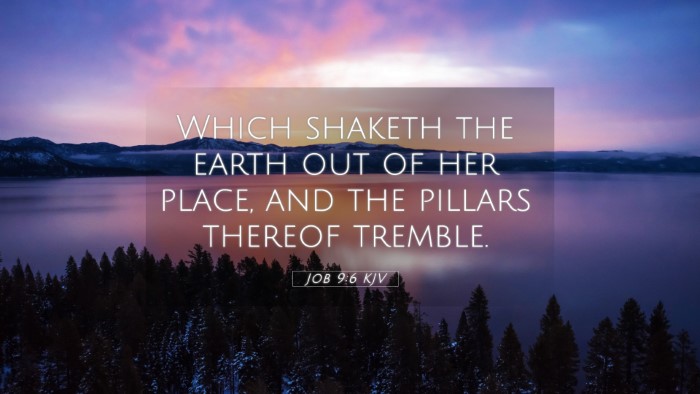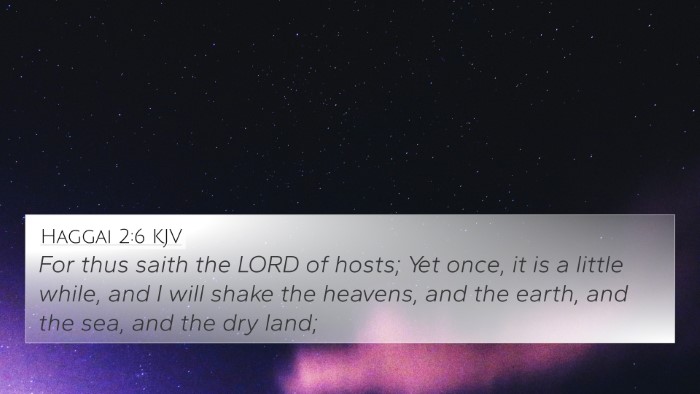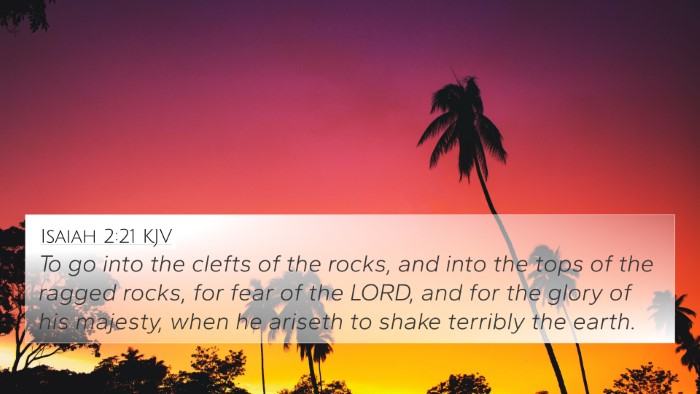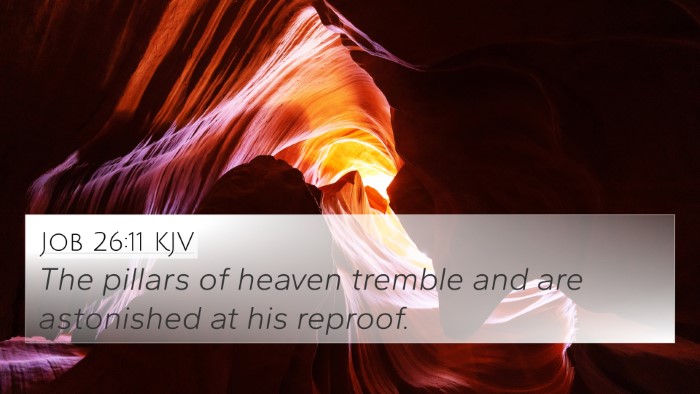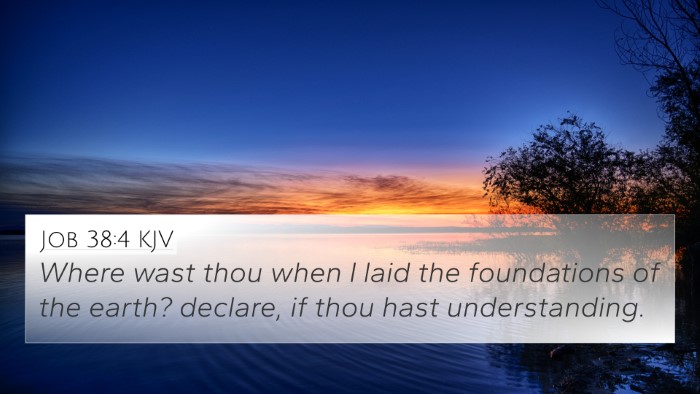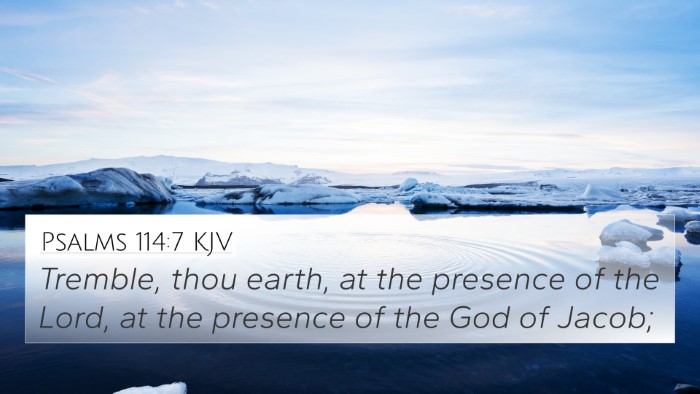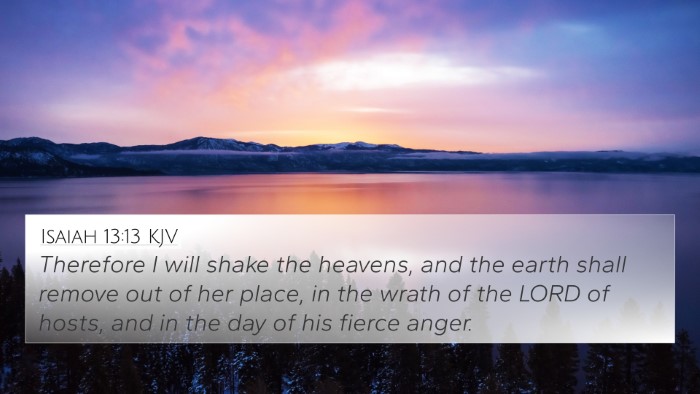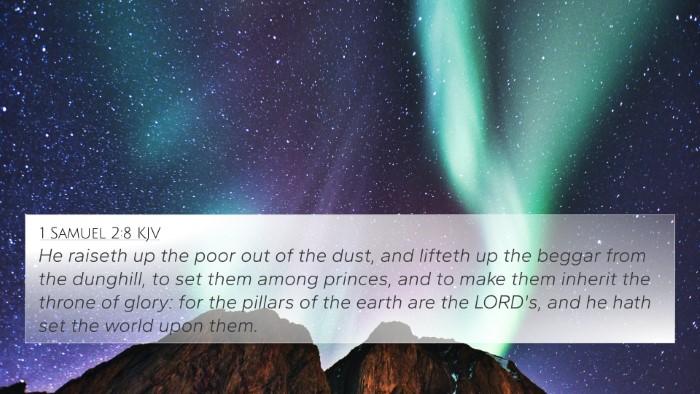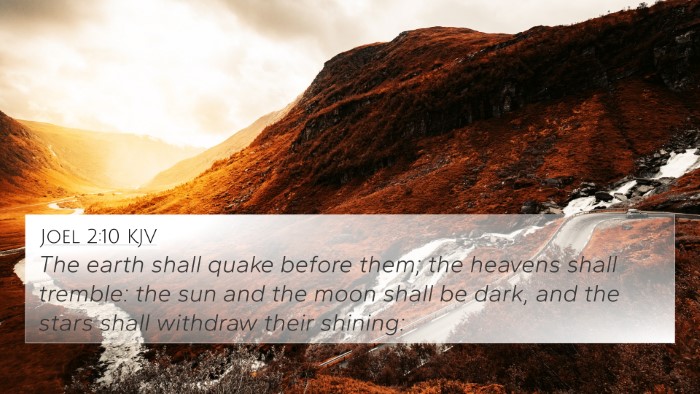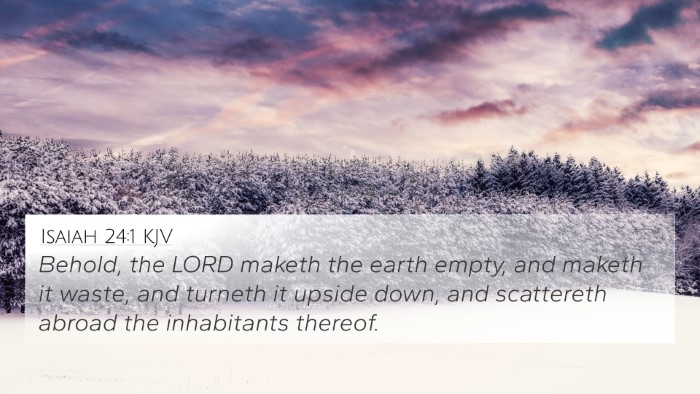Understanding Job 9:6
Job 9:6 states: "Which shaketh the earth out of her place, and the pillars thereof tremble." This verse is part of Job’s response to his friends, where he emphasizes the sovereignty and majesty of God, reflecting on the power of God over creation. Below is a combined interpretation from various public domain commentaries.
Divine Sovereignty
Matthew Henry emphasizes that the passage illustrates God's absolute dominion over the earth. His comments indicate that the shaking of the earth is a metaphor for His ability to control natural forces and upheavals in the world. Job recognizes that God's power is both awe-inspiring and terrifying, as He can turn the world upside down at His will.
Adam Clarke further expands on this notion by discussing the physical nature of the earth and how God’s command can disrupt the very foundation of the world. He suggests that such imagery communicates the idea that even the strongest supports of the earth—its pillars—are at the mercy of God’s authority.
Theological Implications
This verse also speaks to the theological theme of God's omnipotence, which is a recurring motif throughout the scripture. Albert Barnes notes the implications for humanity, suggesting that if God can shake the earth, humans must recognize their own frailty and limitations in the face of such divine power.
Cross-References
- Psalms 46:2-3: "Therefore will not we fear, though the earth be removed, and though the mountains be carried into the midst of the sea." This speaks to God’s stability amidst chaos.
- Psalms 104:32: "He looketh on the earth, and it trembleth: He toucheth the hills, and they smoke." This speaks to God's interaction with nature.
- Isaiah 24:18: "For the windows from on high are open, and the foundations of the earth do shake." This resembles Job's emphasis on the earth's instability.
- Hebrews 12:26-27: "Yet once more I shake not the earth only, but also heaven." This ties Job's experiences to New Testament promises of future cosmic upheaval.
- Matthew 24:29: "Immediately after the tribulation of those days shall the sun be darkened, and the moon shall not give her light, and the stars shall fall from heaven." This emphasizes the changing nature of God's created order.
- Revelation 16:18: "And there were voices and thunders and lightnings; and there was a great earthquake, such as was not since men were upon the earth." This references cataclysmic events associated with divine judgment.
- Romans 8:22: "For we know that the whole creation groaneth and travaileth in pain together until now." This echoes Job's sentiment on creation's response to God's authority.
Application for Believers
The implications of Job 9:6 for modern believers include an understanding of God's majesty and control over all aspects of life. As we reflect on the power of God, we are called to humble ourselves and acknowledge our dependence on Him. Matthew Henry points out that recognizing God’s authority brings comfort to those who believe, as it assures them that their lives are under divine supervision.
Integrating Cross-References into Study
Using these Bible cross-references is crucial for an enhanced understanding of the scriptures. They help form connections between verses, offering deeper insights into biblical themes. Here are some tips for effective cross-referencing:
- Utilize a reliable Bible concordance to find verses related to specific themes.
- Examine the context of each verse to grasp the intended message.
- Compare verses for thematic consistency and explore differing perspectives.
- Engage with Bible cross-reference guides to align verses across Old and New Testament contexts.
Conclusion
In conclusion, Job 9:6 serves as a profound reminder of God's sovereign power over creation, urging believers to comprehend their standing under His authority. The partnering of this verse with extensive cross-references fortifies understanding and emphasizes themes that resonate throughout the Scriptures, preparing believers to face life's tribulations with faith.

